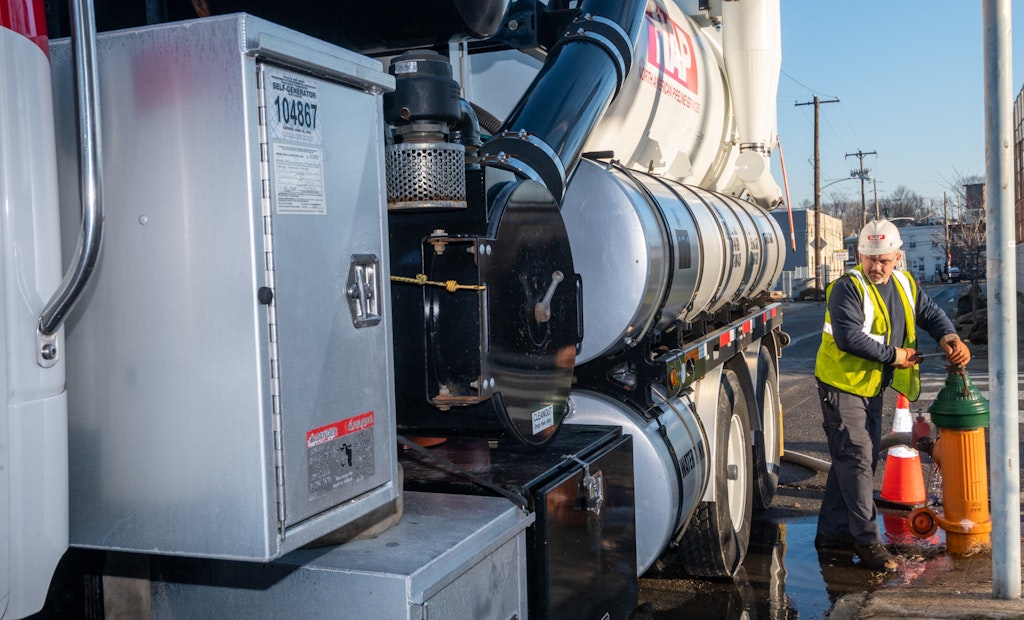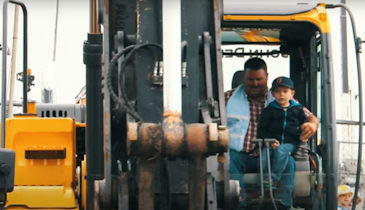Interested in Municipal/Industrial?
Get Municipal/Industrial articles, news and videos right in your inbox! Sign up now.
Municipal/Industrial + Get AlertsIf you’ve stuck to serving residential customers for many years and never ventured into the world of municipal contracts, making the move could be intimidating. But if you can get a foothold with municipalities in your area and prove yourself, it can lead to consistent and profitable work.
Here is some advice from contractors who have regularly done work on the municipal side.
Do careful research beforehand to submit a winning bid
In the private sector, jobs are often based on performance and prior relationships, which gives larger companies a distinct advantage. In municipal work, jobs are often awarded to the lowest bidder, which means you and your competitors start at the same point. A crucial part then is to make sure your bid is well researched so you’re actually able to execute it once it comes time to get to work.
“Do your homework,” says Tom Mullen, owner of North American Pipeline Services in Freehold, New Jersey. “Review all aspects to make sure you’re covering all of the bases. You need to do your due diligence. At the end of the day, you’ve got to make sure you’re comfortable with your bid.”
Project details will be listed in the municipality’s specifications, but you need to include any potential extra costs. For example, disposal requirements from cleaning waste, abnormal hours such as night work, water supply costs for cleaning operations, and even traffic control on secondary streets and highways. Also, before submitting a bid, visit the job site to determine things like accessibility or the condition of the pipes.
Stay in touch
When you complete a contract for a municipality, that doesn’t have to be the end of the relationship. You could be in the running to pick up additional projects that aren’t large enough to require bids. Also, municipalities sometimes share information about contractors with each other, so once you’ve established yourself as a trusted partner with one client, you’re well on the way to earning more municipal contracts.
“It’s important to stay in touch with them,” says Joe Kandefer, owner of Kandey Co. in West Seneca, New York. “And for the person who is in charge, we’ll buy lunch for their crew or something. Just little things like that to keep our name on their tongues.”
Building that relationship and developing a track record of successful jobs can help in those situations where the work is not a onetime project. For example, Kandey Co. holds several service contracts with the Erie County Water Authority. One is a two-year contract that has to go through the bidding process every time it expires, but Kandey Co. has been able to lock it down for more than 20 years now.
Consider the difference between performance and prescriptive specs
When a municipality includes prescriptive specifications in its request for proposals, it limits the contractor’s ability to manage and plan the project. That’s not necessarily a deal breaker. Just be sure you’re completely comfortable about what type of project you’re bidding on.
“We like performance specifications because what they do is allow us to apply our experience and to use our knowledge to manage our risk and maximize efficiencies and productivity,” says Matt Timberlake, vice president of Ted Berry Co., a division of Vortex, in Livermore, Maine.
No detail is too small
Including as much detail as possible in your bid helps avoid surprises. For example, on a pipe bursting job, Timberlake says if a pneumatic hammer is going to be used, the bid will go as far as noting the decibel level and mention the duration of the noise. That way area residents are aware of what will be taking place.
“I know contractors who disagree with that and feel like when they include detail, if something comes up in the field and they want to change or modify their approach, they feel that it’s harder to do that,” Timberlake says. “I like to be very clear. It’s all about managing the owner’s expectations. The majority of places we work, we end up back in. That’s one of the reasons we take so much effort upfront in helping identify and manage expectations. We want the owners we’re working for to be left feeling that they got what they expected; they got it how they expected, got it on schedule, on budget.”
Equipment maintenance is imperative
Keeping your equipment in top shape is a no-brainer no matter what kind of work you take on. But when it comes to municipal contracts, it’s worth emphasizing it.
“You need to have good equipment,” says Kevin Jacobson, who worked for a municipality for two decades before focusing on his own drain cleaning and inspection company, Central Iowa Televising. “If you break down all the time, that is not good. Keep your equipment washed and the inside of trucks cleaned up. The way your equipment is presented and maintained is an indication of the kind of work you do. If you take care of your equipment, you will take care of the client properly. It is a reflection of your quality of work and what you stand for.
“A lot of this work is based on trust. If you get your foot in the door and do a good job for a community — a fair price and excellent service — the odds are good you will get called back.”
Be prepared to temporarily handle expenses
Payment assurance is one of the biggest benefits of municipal contracts. But just because you have guaranteed money, that doesn’t mean you will receive it immediately. When taking on municipal work, be certain you’re comfortably able to handle all the expenses while you await payment.
“The payment period is a longer process from the day you do work to when you have payment in hand,” Mullen says.
In his experience, payment time ranges from 40 to 60 days from the time the work is completed to when he has a check in hand. Therefore, it’s important to consider carrying costs when placing a bid. Structure bids so you’re comfortable with all expenses, and remember that, depending on project size, you might lock your equipment and personnel into a job for a considerable time period. Contract lengths vary depending on the size of the project. Mullen says his company’s first municipal project, which involved cleaning and inspecting 94,000 feet of sanitary sewers in a township, took 40 days.






